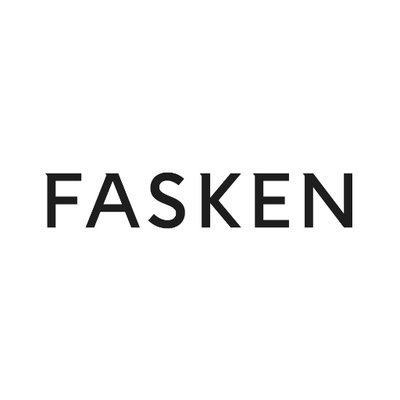Cannabinoid Drugs, Medicinal Cannabis and Opioid Drugs
Fasken / Canada
The legal framework for cannabinoid drugs, medical cannabis and opioids in Canada. Prepared in association with Fasken, a leading global law firm, this is an extract from The Pharma Legal Handbook: Canada, available to purchase here for USD 99.
Cannabinoid Drugs
1. Are Cannabinoid Drugs authorized in your country?
Yes. Cannabinoids can be the active ingredient of a drug product in Canada, provided that such product meets applicable safety, effectiveness and quality requirements under the Food and Drugs Act and its regulations. This means that Cannabinoid Drugs must be submitted for marketing authorization through the drug approval pathway. Among other things, the sponsor of a Cannabinoid Drug – as any other new drug – must demonstrate that the drug has potential therapeutic value that outweighs the risks associated with its use (e.g. adverse effects, toxicity). This is generally done via the submission of clinical trial results. Following a complete review of a New Drug Submission (NDS), Health Canada can approve a Cannabinoid Drug and issue a Notice of Compliance (NOC), as well as a Drug Identification Number (DIN) which permits the sponsor to market the drug for its approved indications in Canada.
2. What are the regulatory authorities with jurisdiction over Cannabinoid Drugs?
The regulatory authority with overall jurisdiction over Cannabinoid Drugs is Health Canada, and more particularly the Health Products and Food Branch (HPFB) for any matter related to drugs (including Cannabinoid Drugs) and the Cannabis Legalization and Regulations Branch for any matter related to Cannabis (the active ingredient).
3. Is there a specific regulatory framework for the authorization, pricing, and reimbursement of Cannabinoid Drugs?
Cannabinoid Drugs – as any other drugs in Canada – can be authorized for sale in Canada once they have successfully gone through the federal drug review process pursuant to applicable requirements under the Food and Drugs Act and its regulations. Following a complete review of a New Drug Submission (NDS), Health Canada can approve a Cannabinoid Drug and issue a Notice of Compliance (NOC), as well as a Drug Identification Number (DIN) which permits the sponsor to market the drug for its approved indications. It is also important to note that in order to perform regulated activities with Cannabinoid Drugs, a person may also need to hold a Drug Establishment Licence (e.g. to fabricate, package/label, test, distribute, wholesale and/or import drugs) as well as a Cannabis Drug Licence (e.g. to possess Cannabis and/or produce or sell a drug containing Cannabis).
In Canada, the reimbursement of drug products is overseen by each provincial legislature. Each province has discretion whether or not to list a drug (or any indications of a drug) in the provincial formulary comprised of products covered by the provincial public drug plan. Cannabinoid Drugs are no exception. Certain federal bodies also have authority over their own drug plan, such as the Indigenous Services Canada’s First Nations and Inuit Health Branch or the Department of National Defence. The Canadian Agency for Drugs and Technologies in Health (CADTH) reviews drug listing submission for all provinces except Québec and the Institut National d’Excellence en Santé et en Services Sociaux (INESSS) do so in Québec. CADTH and INESSS offer listing recommendations based on pharmacoeconomic criteria and optimal use of medications, but each province has its own drug plan decision-maker and administrator. As a result, the reimbursement of Cannabinoid Drugs may differ from province to province and drug to drug.
Regarding pricing, the Patented Medicine Prices Review Board (PMPRB) has jurisdiction over patented drugs. The PMPRB regulates the patentees’ prices of patented medicines sold in Canada to ensure that they are not excessive. Note that the PMPRB’s authority derives from the Patent Act, so it has no authority to regulate the prices of non-patented drugs, including non-patented generic drugs. In addition to the PMPRB’s oversight over excessive pricing at the federal level, each province also controls the price of drugs listed in its drug formulary. Provinces often require the conclusion of a listing agreement including rebates or reimbursements conditions prior to listing a new drug or a new drug indication on their formulary. In order to generate more savings, provincial, territorial and federal plans also participate in the pan-Canadian Pharmaceutical Alliance (pCPA) and generally negotiate the financial components of formulary listing together.
4. Which are the cannabinoid drugs that have received market approval to date?
Based on the Health Canada Drug Product Database, Cannabinoid Drugs that have received market approval to date and are currently marketed in Canada include nabiximols (Sativex®) and nabilone (Cesamet®).
5. Who can prescribe Cannabinoid Drugs?
Cannabinoid Drugs can be prescribed by practitioners. Practitioners are persons who are registered and entitled under the laws of a province to practise in that province the profession of medicine, dentistry or veterinary medicine. In certain provinces, other healthcare professionals also have limited prescription privileges, including registered nurses and pharmacists for instance, but their prescription privilege does not extend to Cannabinoid Drugs at this time.
6. Is there a list of doctors authorized to prescribe Cannabinoid Drugs?
No. Any practitioner can prescribe Cannabinoid Drugs.
7. What approvals or notifications are required to prescribe Cannabinoid Drugs?
No approvals or notifications are required to prescribe Cannabinoid Drugs. In fact, any practitioner registered and authorized to prescribe drugs may prescribe Cannabinoid Drugs based on his/her medical opinion.
8. Which organizations are authorized to sell/distribute Cannabinoid Drugs available?
Drug manufacturers, wholesalers and distributors holding an appropriate Drug Establishment Licence and a Cannabis Drug Licence can sell and distribute Cannabinoid Drugs to drug manufacturers, wholesale druggists, pharmacists or the Government, including authorized governmental buying groups and hospitals.
Pharmacists and, to some extent, practitioners are allowed to sell and dispense Cannabinoid Drugs to patients under provincial laws, in accordance with a written prescription signed and dated by a practitioner.
9. Is there a list of retailers/distributors authorized to sell Cannabinoid Drugs?
No. There is no specific list for Cannabinoid Drugs. However, any pharmacist can sell and dispense Cannabinoid Drugs in accordance with a prescription signed and dated by a practitioner.
10. Are there proposals for reform or significant change to the regulation of Cannabinoid Drugs?
Canada legalized Cannabis for adult use on October 17, 2018. In addition to traditional requirements applicable to the sale and distribution of drugs, a person wishing to commercialize Cannabinoid Drugs must now seek a Cannabis Drug Licence in order to be allowed to possess Cannabis and/or produce or sell a drug containing Cannabis under the new Cannabis Act and its regulations. The Cannabis reform (including Cannabinoid Drugs) came into force on October 17, 2018 and Health Canada continues to provide additional guidance and issue complementary statements, policies and guidelines.
At the provincial level, many colleges of physicians and other professional bodies have reacted to the legalization and are proposing updated or additional professional standards and guidelines for their members.
11. When are they likely to come into force?
N/A
Medicinal Cannabis
12. Is Medicinal Cannabis authorized in the country?
Yes. Cannabis for medical purposes is legal throughout Canada. In fact, Canada even legalized Cannabis for adult (recreational) use on October 17, 2018. While the Cannabis Act and its regulations now provide for a comprehensive legal framework applicable to Cannabis for adult (recreational) use, the sale of Medicinal Cannabis is still subject to specific licensing requirements and a particular framework allowing access to Cannabis for medical purposes, including various rules applicable to distributors, healthcare professionals and patients.
13. What are the regulatory authorities with jurisdiction over Medicinal Cannabis?
Cannabis primarily falls under the jurisdiction of the federal Government. Health Canada has overall jurisdiction over Cannabis and has recently established a Cannabis Legalization and Regulations Branch.
Cannabis is also regulated by different provincial laws governing the sale, distribution and use of Cannabis in each Canadian province and territory. To some extent, municipalities also have some authority over the use of cannabis in public spaces. However, provincial and local laws and regulations typically apply to (recreational) Cannabis and the main regulatory authority with jurisdiction over Medicinal Cannabis remains Health Canada.
14. What is the regulatory framework for the authorization, pricing, and reimbursement of Medicinal Cannabis?
It is worth noting that, since the legalization on October 17, 2018, Cannabis can be cultivated, processed, tested and/or sold by a person holding the appropriate classes of licences that authorize such activities – whether it is intended for adult (recreational) use or medical purposes.
In particular, Medicinal Cannabis can be accessible in accordance with federal legislation, under the Cannabis Act and its regulations. An individual can obtain Medicinal Cannabis for his/her own medical purposes either (i) by registering with the holder of a Licence for Sale for medical purposes and purchasing Medicinal Cannabis from this person, or (ii) by registering with the Minister in order to produce his/her Medicinal Cannabis. To obtain registration, the individual must provide information, including a medical document from a healthcare practitioner recommending the use of Medicinal Cannabis.
There are currently no pricing requirements applicable to Cannabis, whether medicinal or non-medicinal (recreational), and this product is sold in a free competition environment, subject to provincial and territorial restrictions in the case of (recreational) Cannabis. Note that the Canada Revenue Agency imposes certain duties to a cannabis licensee who packages cannabis products.
Public and private payors do not cover Cannabis, unless medically required in exceptional circumstances. As for the reimbursement of drugs, coverage is supervised by the provincial legislature and certain federal plans; therefore, reimbursement may differ from province to province. By way of illustration, Medicinal Cannabis is not reimbursed under the basic plan in the province of Québec, however, some private insurers as well as organizations such as Veteran Affairs Canada may reimburse part of the cost of Medicinal Cannabis.
15. How is the production and import of Medicinal Cannabis regulated and by which agencies/authorities?
All aspects of the production and importation are regulated by the Cannabis Act and the Cannabis Regulations. For production, a producer must obtain a licence for cultivation, processing, analytical testing and/or research depending on the activities carried out at a site. Cannabis producers must comply with many requirements and restrictions concerning, inter alia, key personnel security clearances, physical security measures, Good Production Practices, packaging and labelling, record-keeping, reporting, etc.
In Canada, importing and exporting Cannabis for adult (recreational) use remains prohibited. A holder of a licence is only authorized to import or export Cannabis for medical or scientific purposes. In addition to applicable licensing requirements, they must hold an import or export permit, as applicable, for each shipment of Medicinal Cannabis that is imported or exported.
The authority responsible for compliance and enforcement of the regulations is Health Canada. The Canada Border Services Agency is also closely involved with respect to importation and exportation matters.
16. What approval or notifications are necessary to produce or import Medicinal Cannabis?
To produce fresh or dried marihuana or marihuana plants or seeds, a producer must obtain a Licence for Cultivation. To produce cannabis oil or cannabis resin, a producer must obtain a Licence for Proceeding. In order to obtain such licensing, a producer must submit a comprehensive application and follow the regulatory approval pathway, which includes extensive security checks and a rigorous application review. Key factors in application processing times are the quality of the application and whether it contains sufficient information and evidence demonstrating how it meets the security measures, the Good Production Practices, and the record-keeping requirements.
A Cannabis Licence under the Excise Act, 2001 is also required if a person cultivates, produces or packages Cannabis products. The Canada Revenue Agency imposes certain duties to a Cannabis licensee who packages Cannabis products.
To import Medicinal Cannabis, the licensed producer must hold an import permit for each shipment of cannabis that is imported. This permit is obtained via an application for a licence or a permit with the Minister.
Licences and permits authorizing the importation of Cannabis may be issued only in respect of Cannabis for medical or scientific purposes or in respect of industrial hemp.
17. What is the regulatory framework for the marketing and distribution of Medicinal Cannabis?
The Cannabis Act makes no distinction between Medicinal Cannabis and non-medicinal (recreational) Cannabis in terms of promotion, display and general packaging and labeling restrictions. To promote and distribute Cannabis, the holder of a licence must comply with many regulatory requirements, which are listed in the Cannabis Act and the Cannabis Regulations (other requirements may be added in subsequent regulations).
In Canada, there is currently an overarching prohibition against any form of promotion of cannabis, cannabis accessories and services related to cannabis. Promotion can only be disseminated under limited exceptions, including, for instance, (i) promotion by a person that is authorized to produce, sell or distribute cannabis, that is directed at any person that is authorized to produce, sell or distribute cannabis, but not, either directly or indirectly, at consumers (i.e. B2B marketing between license holders), (ii) promotion by means of informational promotion or brand-preference promotion (as defined under the Cannabis Act) if the promotion is in a communication that is addressed and sent to an individual who is 18 years of age or older and is identified by name; in a place where young persons are not permitted by law; or communicated by means of a telecommunication, where the person responsible for the content of the promotion has taken reasonable steps to ensure that the promotion cannot be accessed by a young person, (iii) promotion at the point of sale if the promotion indicates only Cannabis availability, its price or its availability and price.
By virtue of the federal regime, a person may also promote Cannabis by displaying a brand element of Cannabis on a thing that is not Cannabis, provided that this thing is not associated with young persons; there are no reasonable grounds to believe it could be appealing to young persons; and it is not associated with a way of life such as one that includes glamour, recreation, excitement, vitality, risk or daring. However, it remains prohibited to display either brand elements of Cannabis or the name of a person that produces, sells or distributes cannabis in a promotion that is used in the sponsorship of a person, entity, event, activity or facility. It is also prohibited to display same on any facility used for a sports or cultural event or activity.
Importantly, the province of Québec has also introduced its own Cannabis promotion restrictions under the provincial Cannabis Regulation Act. Particular prohibitions are therefore applicable in the province of Québec. For example, it is specifically prohibited in Québec to sell or give an object that is not Cannabis or supply such an object if a name, logo, distinguishing guise, design, image or slogan that is directly associated with Cannabis, a brand of Cannabis or a Cannabis producer appears on the object.
Regarding distribution, the holder of a licence must also comply with many restrictions related to the packaging and labelling of Cannabis (e.g. the packaging must be opaque, bear mandatory health warnings and the standardized cannabis symbol, not contain more than the equivalent of 30g of dried cannabis, etc.). There are a considerable number of technical rules and standards applicable to packaging, labeling and distribution of Cannabis. A document entitled Consumer Information – Cannabis, published by the Government of Canada, must also be given to the patient.
If Medicinal Cannabis is distributed in a hospital, it must be distributed or sold in the container in which it was received from the holder of the licence for sale or the holder of the licence for processing and a label must be applied on the container indicating specific information (name of the patient, daily quantity to be used, the date of the distribution, etc.).
18. How can patients obtain Medicinal Cannabis?
A patient must acquire a medical document from a healthcare practitioner. He/she can then obtain Medicinal Cannabis for his/her own medical purposes either (i) by registering with the holder of a Licence for Sale for medical purposes and purchasing Medicinal Cannabis from this person or (ii) by registering with the Minister in order to produce his/her own Medicinal Cannabis. A practitioner may also consent to receive Cannabis, other than plants or plant seeds, on behalf of a patient.
19. Who can prescribe Medicinal Cannabis?
Medicinal Cannabis can be prescribed by healthcare practitioner. A healthcare practitioner is either a medical practitioner who is entitled under the laws of a province to practise medicine in that province or a nurse practitioner who is entitled under the laws of a province to practise as a nurse practitioner.
20. Is there a list of doctors authorized to prescribe Medicinal Cannabis?
No. Legislation does not require that healthcare practitioner be registered to prescribe Medicinal Cannabis. However, the Minister may issue a notice preventing a specific healthcare practitioner from issuing Medicinal Cannabis prescriptions.
In addition, the holder of a Licence for Sale must provide a monthly report to Health Canada, including sales data and statistics and containing the given name, surname, profession and business address of each healthcare practitioner who provided a medical document. This information is not published by Health Canada.
21. What approvals or notifications are required to prescribe Medicinal Cannabis?
There is no approval or notification required to prescribe Medicinal Cannabis. However, a healthcare practitioner can only prescribe Medicinal Cannabis if Cannabis is required for the condition for which the patient is receiving treatment. Professional standards and guidelines related to Cannabis prescription are published by colleges of physicians and relevant professional bodies in each provincial jurisdiction.
22. Where is Medicinal Cannabis available?
Medicinal Cannabis is available from holders of Licence for Sale of medical cannabis, and, in some circumstances, in hospitals. Patients must be registered with a licensee to purchase Medicinal Cannabis. If registered with the Minister, a patient may also cultivate a limited amount of Medicinal Cannabis.
While it may still be relevant for a patient to obtain Medicinal Cannabis in accordance with the rules applicable to access to Cannabis for medical purposes (e.g. to ensure medical follow-up, to obtain insurance coverage, etc.), it should be recalled that Cannabis for adult (recreational) use is legal in Canada since October 17, 2018. As a result, Cannabis is now available at retail and online for Canadians who may purchase it from an authorized retailer or public body responsible for the sale of Cannabis, depending on the regime applicable in the province where the individual is located.
23. Is there a list of retailers authorized to sell Medicinal Cannabis?
Yes. There is a list of licensed producers. The list is available at: https://www.canada.ca/en/health-canada/services/drugs-medication/cannabis/licensed-producers/authorized-licensed-producers-medical-purposes.html. Health Canada also publishes Quarterly Compliance and Enforcement Report including inspection data summary for each inspected site.
24. Are there proposals for reform or significant change to the regulation of Medicinal Cannabis?
A reform of the regulation of Medicinal Cannabis came into force with the legalization on October 17, 2018.
Opioid Drugs
25. Are Opioid Drugs authorized in your country?
Yes. Opioid Drugs approved by Health Canada can be prescribed as a medical treatment and distributed in compliance with the stringent regulatory framework established by the Food and Drugs Act and its regulations, the Controlled Drugs and Substances Act and the Narcotic Control Regulations. Outside of this regulated context, Opioids are illegal substances the trafficking of which is a criminal offence in Canada.
26. What are the regulatory authorities with jurisdiction over Opioid Drugs?
The regulatory authority with overall jurisdiction over Opioid Drugs is Health Canada, and more particularly the Office of Controlled Substances and the Opioid Response Team.
27. Is there a specific regulatory framework for the authorization, pricing, and reimbursement of Opioid Drugs?
Opioid Drugs – as any other drugs in Canada – can be authorized for sale in Canada once they have successfully gone through the federal drug review process pursuant to applicable requirements under the Food and Drugs Act and its regulations. Additional requirements apply under the Controlled Drugs and Substances Act and the Narcotic Control Regulations, including particular licencing requirements for distributors.
Pricing and reimbursement considerations applied to drug products are also applicable to Opioid Drugs, as any other drugs. You may refer to the Response to Question 3 about Cannabinoid Drugs for more details.
28. Which are the Opioid Drugs that have received market approval to date?
Based on the Health Canada Drug Product Database, some Opioid Drugs that have received market approval to date include fentanyl (Duragesic®), hydromorphone (Dilaudid®, Exalgo®), hydrocodone (Vicodin®, Norco®), morphine (Astramorph®, Avinza®), methadone (Diskets®, Dolophine®, Methadose®, Methadose Sugar-Free®), mépéridine (Demerol®), oxycodone (OxyContin®, OxyNEO®, Percocet®, Percodan®) and codeine (Tylenol® 3, 4).
29. Who can prescribe Opioid Drugs?
Opioid Drugs, as any other prescription drugs, can be prescribed by practitioners. Practitioners are persons who are registered and entitled under the laws of a province to practise in that province the profession of medicine, dentistry or veterinary medicine. In certain provinces, other healthcare professionals also have limited prescription privileges, including registered nurses and pharmacists for instance, but their prescription privilege does not extend to Opioid Drugs at this time.
30. Is there a list of doctors authorized to prescribe Opioid Drugs?
No. Any practitioner can prescribe Opioid Drugs.
31. What approvals or notifications are required to prescribe Opioid Drugs?
No approvals or notifications are required to prescribe Opioid Drugs. In fact, any practitioner registered and authorized to prescribe drugs may prescribe Opioid Drugs based on his/her medical opinion.
32. Which organizations are authorized to sell/distribute Opioid Drugs available?
A licensed dealer may, subject to the terms and conditions of their licence, produce, make, assemble, sell, provide, transport, send or deliver Opioid Drugs as specified in their licence. They cannot sell to patients. Dealer’s Licences are issued pursuant to the Narcotic Control Regulations.
Pharmacists and, to some extent, practitioners are allowed to sell and dispense Opioid Drugs to patients under provincial laws, in accordance with a written order or a prescription signed and dated by a practitioner.
33. Is there a list of retailers/distributors authorized to sell Opioid Drugs?
No. There is no public list of licensed dealers in Canada. However, any pharmacist can sell and dispense Opioid Drugs in accordance with a prescription signed and dated by a practitioner.
34. Are there proposals for reform or significant change to the regulation of Opioid Drugs?
Health Canada has begun to initiate a number of regulatory measures to restrict the marketing and advertising of Opioids. For example, all prescription Opioids must now carry a warning sticker. In addition, Health Canada recently began requiring pharmaceutical companies to develop and implement risk-management plans aimed at reducing the potential harms associated with the use of Opioids.
In June 2018, Health Canada also proposed to further restrict drug manufacturer’s advertising of Opioids and began consulting on the scope and intent of possible restrictions including:
- Limiting visits from sales reps to healthcare professionals;
- Limiting conferences and educational courses sponsored by Opioid makes; and
- Limiting Opioid ads in scientific journals;
British Columbia recently filed a class action lawsuit against over 40 Opioid manufacturers, wholesalers and distributors before the Supreme Court of British Columbia. The Government alleges that companies deceived prescribers and patients about the risks and benefits of Opioids, and that the companies have harmed the public health-care system.
35. When are they likely to come into force?
Health Canada plans to introduce proposed regulations restricting the advertising of Opioids in early 2019.
























































